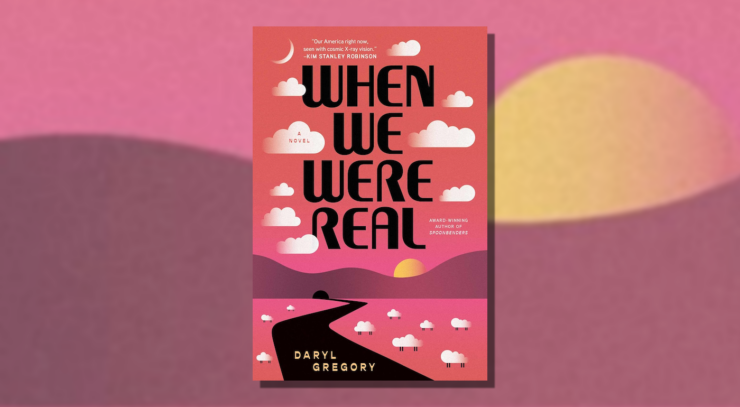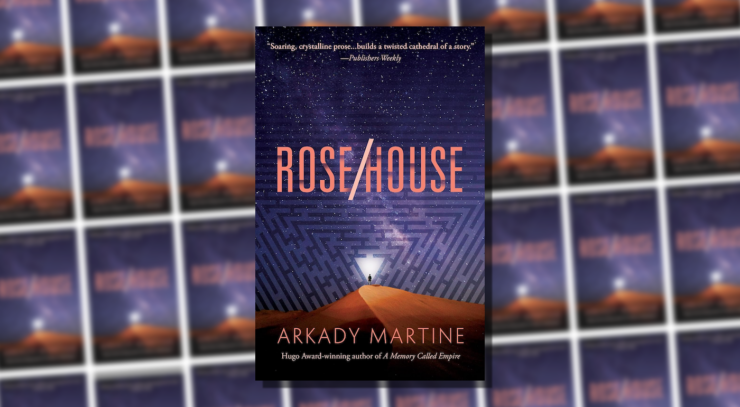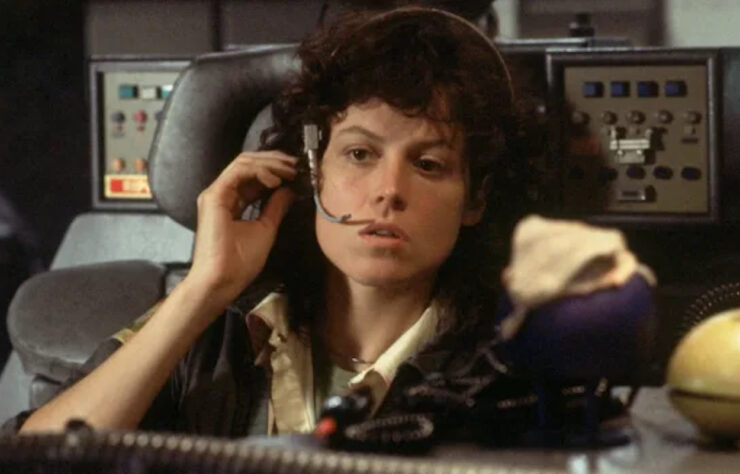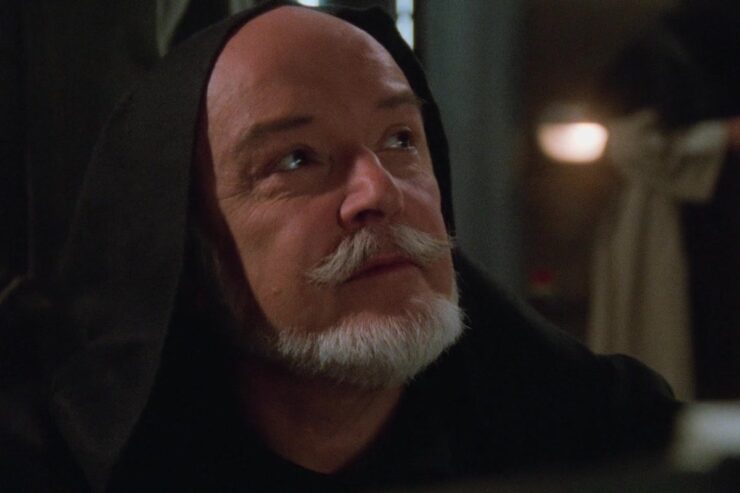Searching for her daughter, a woman confronts the man she believes stole the child…and the strange truth behind local legends.
Ginny’s car broke down in the forest, minutes after she slowed down around a curve and saw the campfire just off the road. It was exactly the kind of campfire she would have imagined, out in the woods, a man staring at her as her car slid past. She had her windows down, as the night was mild and the smell of the damp earth was sweet. She saw the child and her heart beat and it was actually the terror of making a wrong decision that caused her to keep driving for a few minutes, not far, but after braking and hitting the gas and then repeating once too often, she heard the car groan and die. Dread fought with fear. What if he did something to the girl because he saw the car?
It was late afternoon, the light was dwindling, and that man had just been standing there, watching Ginny as she drove by, alert. She should have stopped and pretended to ask for directions. Gotten the lay of the land and grabbed the child. Possibly. But she didn’t want to ask him anything. She’d rather kill him.
She had debated driving on and getting help. But he could be gone, he could be going right then and she would lose too much time. And of course there was the child. She couldn’t take any chances there. Her heart thudded.
She couldn’t let them wander off. Ginny was tough. She got out, checked her trunk, and selected a tire iron, a hazard sign, a flashlight (oops, dead batteries), and a plastic rope. There was also her gun (she was a security officer), and she took that. She consulted her purse and removed keys, her wallet, a pen, some tissues. The gun fit into her jacket pocket. She placed the hazard sign on the road.
She loaded her items (except for the gun) into the vest she wore under her open jacket. She patted her pockets and adjusted her jacket and stepped down the road.
It was the end of summer, the beginning of fall, and the air had gotten so sweet and clean; she had to remember not to keep breathing it so deeply. It made her a little dizzy on her rush back to the campfire, to the child. The child tore at her, caught her breath, and then she had to remember to breathe again. The child was breath to her, too.
She slowed down and forced herself to walk stolidly back. She liked that word. She’d never been pretty, luckily, since the pretty ones get locked into believing they had to be pleasing. Ginny didn’t value being pleasing. She liked looking and judging. A star streaked across the sky, and she noted it.
People talked about meteors more and more, and she had a casual interest in them. Maybe even grudging. It amused her because the meteors often led to discussions about aliens. There were always rumors of sightings and, in the past few years, of a crash or two. They say the government always covers it up, but in the woods, in the mountains, along the coastline there is usually someone who knows someone who’s seen an alien up close. The joke is: They taste like chicken.
Either there were dozens of ships landing all over the globe—and where were the photos? where was the evidence?—or it was all just local legend. People loved local legends. Of course, another possibility was that the ships didn’t crash; they landed and took off again. She thought, if it was true, if any of it was true, it was probably true in a different way. For instance, meteors and comets entered the atmosphere constantly, but if you asked people they would think it was only once in a while, and at night, or in Russia, though one crashed through a roof and struck a sleeping woman in Alabama. That’s the difference between folklore and science. So she kept an open mind. She’d like to meet an alien; she was curious. Also, she was pretty disgusted with the human race.
She walked carefully, flat-footed, toward the campfire. Her heart picked up the closer she got; her heart jostled and slid around and almost brought tears to her eyes. The child she’d seen was her daughter; what did that man want with her?
She stepped from the dusk into the campfire light. The man had been arranging small pieces of wood. He stood up quickly. The child looked at her and smiled.
“You’ve got my daughter,” she said.
He pulled himself up straight. “No,” he said. Just no. It irritated her.
“Belinda,” she said to the child, who grinned and stood up. “See?”
The man took a step toward her. “You’re crazy. She’s my daughter.”
“She stood up when I called her.”
“She’s polite. She’s been taught that. Sandy,” he said, half turning to the girl. “Sit down.” She sat. “See that?”
“Doesn’t mean she’s yours,” Ginny said. “Because she’s mine.”
The man’s hands turned into fists. “Are you crazy?” His voice had gotten rough. He stepped in front of the girl, who was sitting quietly.
Ginny froze for a moment. The child was clearly her daughter. In fact, those were the braids she had done only the day before, and those small black and white ornaments at the tips of each pigtail—she had made them. She took the gun out of her pocket. “I made those pigtails. I braided them.”
The man put his hands up, eyeing her carefully. Men and their gestures, she thought. This was supposed to mean: I am innocent; I don’t know what you want. Standing in front of my child—my child—pretending that he’s innocent as hell. “If I find you touched her, I’ll kill you.”
There was a flicker in his eyes—doubt? caution?—but it gave way to annoyance. “Sandy,” he said quietly.
“Yes, Daddy?” the girl answered, and Ginny’s heart dropped a little. She narrowed her eyes.
“Did he threaten you, Belinda?”
“No, Mommy,” the girl replied.
The two adults looked at the child soberly. The girl must be afraid, Ginny decided. She desperately wanted to grab her, hug her, smell her scent, but the man held his stance, ignoring her gun.
She would shoot. She had shot enough things to know her abilities. But the girl was too close. “Are you using my daughter as a shield?” she asked, though shield was the wrong word. She was afraid the bullet would go through his arm, his neck, whatever she decided—and go into her daughter.
She would kill him when she had a better shot. She was furious and—she wouldn’t look at it so he wouldn’t notice—her hand shook. She wanted to hold Belinda in her arms, squeeze her, make her safe again. “Oh, Belinda,” she breathed, and shut her eyes, just for a second, but it was enough for the man to grab Belinda and back away a few feet. “Stay where you are,” she rasped. “Belinda, come here.”
He put his hand on the child’s shoulder, stopping her.
“Belinda!”
The girl smiled at her, gleeful. Was it a game to her?
“Here, sweetie,” she said, trying to sound calm and cheerful. She held her arms out and again noticed the gun waving in her hand. She straightened it and pointed at the man, motioning her daughter forward with the other hand.
“She won’t go to you,” the man said. “She’s my daughter.”
“Belinda, sweetie,” she said again. The girl inched forward, grinning.
The man held his arm up to block her. “Don’t worry,” he said to the child. “No one’s gonna take you. Never. She’s made a mistake. It’s all right.”
Ginny stepped forward. For God’s sake, what was wrong with her? Why hadn’t she just grabbed the child? She had a gun; the man didn’t. She took another step, and the man moved back, his arm pushing the child along with him.
It was pissing her off. “If you don’t stop, I’ll shoot you.” She really didn’t want to shoot in front of the child—actually, she wouldn’t. It would be too traumatic. “Just stop, dammit,” she snapped. “Tell me why you took her. Make it sound reasonable and I’ll let you go.”
He huffed. “I ‘took’ her because she’s my daughter.” He sighed. “Look. I should have done this right away, but you frightened me.” He turned to the child. “Sandy. Do you want to stay with me because I’m your dad?”
Sandy leaned her head back all the way to look up at his face. “Oh, yes,” she said.
“Belinda,” Ginny said. “Did he scare you? Did he hurt you? Belinda, do you want to come to me? Go home? Do you want to go home with me?”
“Yes,” Belinda said, smiling, and stepped toward her.
The man grabbed her arm.
“Let her go.” Ginny raised her gun.
“You won’t shoot either of us,” the man said. He was tense but determined.
They both heard the siren and turned their heads toward the sound. “I hit nine-one-one on my phone,” he said. “The minute I saw your gun.”
She hesitated. But she heard the siren. Good, then! Law enforcement!
In a minute, Belinda would be back with her. “Just hold on,” she told her daughter. “Just a minute more and we’ll go home.”
The siren came from the original direction she’d come from, around a curve that hid the vehicle till it arrived. It was a van, not a car. She was in an unfamiliar place. The local police cars could look like anything.
The wide doors to the van opened and a figure got out, clothed from head to toe in a contamination suit.
Ginny and the man shifted uncertainly. The child stayed still.
“Hello,” a man’s voice said through the suit. “You’re in a contaminated area. Please come with us so we can decontaminate you.”
“Contaminated?” Ginny protested. “There were no signs.”
“We’re putting up signs now. It just happened a little while ago. You crossed right through the line from okay to not okay. What’s your name?”
“Hugo,” her companion said. “I’ve never heard of this kind of thing. Why should we believe you?”
She nodded in agreement. This really was hard to believe. The man in the big white suit—like the white devil in Ghostbusters—had he offered proof?
“What proof do you have?” she asked pointedly.
Hugo nodded and murmured, “Good for you.” He stepped closer to Ginny, pulling the child with him. They now formed a unit, Ginny thought—man, woman, child.
“Let’s see your badge,” Hugo said.
“I don’t have a badge, Hugo. There are no badges for this. You’ve been taken over by a—what would you call it?—an alien hormone, kind of. Hormonal hypnosis. They make you think that thing”—he pointed at their child—“is a human child.”
Ginny and Hugo huddled closer, each one holding on to the child. “Our child?” Ginny said, shocked. “You said our child is an alien?”
“Problem?” Another white suit bent out of the van and joined them.
“I’m trying to explain—”
“Oh. Hi.” This second figure was a bit friendlier. “It’s not an easy explanation, and there’s no way you’ll believe it, anyway. Not here. We’re with the Department of Environmental Protection. There’s been a chemical spill not far from here, and you need to get decontaminated ASAP. The child especially. Hits them the hardest.”
“Oh!” Hugo said and began to move toward them.
“Don’t be so gullible,” Ginny said while waving her gun. “Where did this happen? I didn’t hear anything on the news.”
The white suits looked at each other, then the genial one said, “Hi, my name’s Michelle.” She held her hand out to Ginny, who automatically shook it and said, “Ginny.”
“Right, Ginny. You haven’t heard about it because we don’t want panic. It happened in the forest, about half a mile in. So we’ve already contained it. But the gas—it’s a gas breach—seeped this way. We’ve tracked a few more people and now we’ve found you.”
She waited for their answer.
“It’s worse for the child,” she repeated gently.
“That’s it,” Hugo said and turned to Ginny. “You don’t have a good reason not to believe them. What—there’s a bunch of criminals going around in big white inflatable suits asking people to come with them? The latest crime spree?”
She considered it carefully, her hand on the child’s shoulder. It was an unlikely scam—and her frown deepened as she considered the possibility that the white suits were telling the truth. Children were always more vulnerable. She looked at Hugo, and they recognized the doubt and fear in each other’s eyes.
“All right,” she said, and he agreed. “All right. We’ll go.”
“The gun, ma’am. Of course you realize you can’t bring the gun to decontamination.” It was the first suit, who was a little blunt.
She looked away, frowning, then nodded. “I’ll give it to you once I see this place,” she said. “I just want to make sure she’s safe. I don’t know you.” She said it lightly, and the white suit hesitated.
“Once we get there,” the suit said. “You agree?”
“I agree.”
“Good. It’s all right. Don’t worry. We’re trying to protect the child, first of all. Just get in the van. You can sit together. That’s right. It’s safe; it’s sealed. The windows won’t open, but we’ll be pumping in fresh air. You’ll feel it. You’ll all be together. No harm.” He held his hands out, bent at the elbow, palms up. It had an innocent look, nonthreatening. But the idea of threat was not far away.
Hugo took her hand and squeezed it lightly. He held Belinda’s hand as well.
It was odd how weak Ginny felt—not weak, exactly, but she was aware that she was unsure of herself. That wasn’t like her. How did she end up leading her daughter to get into a van with strange men? Her husband was no help. Kind and good-hearted, yes, but normally she was the one who figured things out, who held it all together, who threw the hardest punch.
Her hand pulled Belinda close as she whispered to Hugo, “I don’t know about this. It seems crazy, doesn’t it?”
“Gas leaks happen. Overturned railroad cars with chlorine,” he answered. “Truck spills. Planes falling out of the sky. Crazy people with drums of chemicals. We’re lucky they found us here.”
She looked away, frowning.
“What?” he said sharply. “You think it couldn’t happen here?”
“It could happen here,” she said, deflated. It was impossible to know. She put the gun back in her pocket.
The van bumped along. The child stood between them, leaning against Hugo. “Why don’t you sit? Aren’t you tired?” Ginny asked, smoothing her daughter’s bangs. She should cut them once they got home, before she forgot. She froze for a moment, trying to find the memory. Cutting her hair had a tender feel, quite lovely, but she couldn’t visualize holding the bangs in one hand and then cutting them. She felt ashamed. Sometimes she didn’t pay enough attention. She would in the future; she would remember every second she spent with Belinda, and make sure to visualize them before they got buried in everyday life.
The van jolted, bumped over something, drove slowly forward as if rolling into its spot, and stopped. They waited expectantly and then impatiently, and just as Ginny was about to complain, the doors slid open.
There were now three white suits. They stood between the van and a building that looked prefab, just wings branching off from a more substantial center. Some of the wings were very long.
Ginny figured, from the body shapes and sizes, that two were women. One might be the first one who’d spoken to them. She felt more secure. “Hello,” the new woman said. “We’ll be taking you for some baseline tests. Blood oxygen, chlorine saturation, chest X-rays if indicated, nothing scary.” Her eyes looked at them brightly from behind her plastic faceplate.
Hugo grabbed Ginny’s elbow. “We go together,” he said, and she was grateful for him.
“Well, you’ll get your own doctors, you know. No joint exams.”
“Never had a group exam,” the male suit chimed in. “Well, maybe once. Army. Come on in.” He opened the door and they stepped inside.
“We’re certainly not Army,” the female suit said. She waved Ginny toward one corridor. “Come on with me. You can take the child with you. Your husband will go with these men and join you after his blood tests.”
Hugo nodded, and Ginny took the child by the hand and followed. There was a cool burst of air, no smell to it, after they passed some kind of airlock, and she could feel the air moving from left to right, air being pulled from top and bottom, and all of it was clean.
“This air,” she said.
“Oh, it’s good stuff. Clears the lungs. You’ve been inhaling something like a hallucinogen. Not everything you’re seeing is real.”
This brought Ginny up short, and she pulled tight on Belinda’s arm. “Not real,” she said, but it was more like an accusation.
The white suit’s shoulders stiffened. “I shouldn’t have said ‘not real.’ It sounds awful. I didn’t mean it. Everything you’ve always loved is real. You can be sure of that.”
“Then what isn’t real?”
“A detail here and there. The man you’re with?”
Ginny took a deep breath. And then another. She continued to walk forward, but her mind was occupied—not with fears but with a growing doubt, an unease. Hugo was her husband, certainly—wasn’t he? She could solidly picture him, feel his presence in the van, the comfort of his voice—but before then? The images of the three of them, out camping, out in the forest—she had some haziness there, some missing pieces, perhaps. Those might be the hallucinations, if hallucinations were not some lie, some suggestibility this cold, clean-seeming air contained. Where, indeed, was the chemical pollution they were talking about? Were they treating them for poisoning, or poisoning them?
“Belinda, sweetie, how do you feel?” she whispered, bending down to the child. Belinda kicked one foot slightly to curl it behind her other foot, a familiar gesture of impatience. She didn’t answer, but she was a dreamy child, often withdrawn. In fact, she didn’t have much personality.
Ginny frowned.
What a horrible mother I am, she thought, but felt oddly indifferent to that as a statement. What kind of mother should she be if not the kind of mother she was?
The air was actually good. Invigorating. She could picture Hugo taking big dramatic gulps of it, hitting his chest once or twice for emphasis, his shadow thrown against the white fabric walls of the corridor.
No, that was someone else. This guy was more restrained.
She stopped and the white suit stopped a moment later, turning toward her and waiting. All the whiteness seemed wrong. The air was good but everything else was artificial. There were no windows of any kind. She wanted to see Hugo—or maybe not.
“Everything all right?”
“I’m not sure he’s my husband.” It just slipped out of her.
“No? Let’s keep going,”
She’s not surprised, Ginny thought. Which makes me wonder which is the hallucination—before when I thought he was my husband, or now, when I think he might not be?
“Feeling better?” the white suit asked.
“Better than what?” she answered.
“We’ll be there in a minute. How’s your child?”
She had almost forgotten! It must have been this strange air—this hallucination! She glanced down at Sweetie, still holding her hand, and the child looked almost artificial. Her body was too straight.
Then this has to be the hallucination! She stopped and looked at her daughter more carefully, releasing Sweetie’s hand. The child almost tipped over.
“How is she?” the white suit asked, with a curious inflection in her voice.
“I don’t know.” Ginny frowned. This was her daughter, wasn’t it? She did have a daughter; the feeling was strong. Had been strong. She remembered it.
She stopped again and the white suit stopped as well.
This was sickening, she thought, feeling a little unbalanced. Sweetie didn’t even look like a child. It was a kind of yellowish stick with ribs up and down, moving slightly. There was a wavery fog around it that looked like a child, almost a costume. It had paramecium feet—it was the first word that popped into mind. Alien, maybe. Though paramecia weren’t alien. It moved slowly.
“It’s not my child,” she said dully. “How could I think it was?” She looked searchingly into the white suit’s eyes.
The scientist lifted the faceplate up, smiling widely. “Oh! The air mixture is working perfectly! That was record time!” She looked at the sticklike thing, said, “Whoops!” and shut her faceplate again. “I’m not supposed to breathe the air. We don’t know everything about how it works yet. The hallucinations could get me too,” she said, then spoke into her helmet. “This one’s clear,” she said. “Come get the stick. Give it a minute more.”
It hurt Ginny’s heart to hear that. Her right hand reached out.
“Steady,” the suit said. “That’s not your child. They just made you feel it was. Hormones.”
She could see that. Confused as she was, her emotions uncertain, she could still see this was no child. But she had floating memories of her—a small, almost concerned face, lips slightly open, a dreaminess about her eyes, the almost splayed fingers—
“Tell me what this is,” she said. None of it made sense, and doubt was creeping in. Did she have a child? That seemed less and less likely as her lungs filled with clean air—or the reverse, she told herself. It could be this air that was altering her. She had a child; she knew it. She could feel the emotions mothers felt. But this wasn’t a child!
“We think it’s an invasion,” the white suit continued. “Or some strange cycle from another planet. These sticks will change. This is just a stage. They’ll move on to another stage, and we don’t know if there’s more than one molt involved. They appeared in Russia last year, and this year their crops are dying. We believe they affect the soil. They must change the chemical composition. But the stage you met triggers a deep parental need in people. Mostly they keep it to two people, but there have been fights between three or four people.”
A memory floated in her head. A family—herself, that man, that child. Her eyes drifted to the stick, which wavered forward on its cilia.
“It’s not your child. Someone will take it in a minute. You’re a little ahead of schedule. The effects usually take longer to wear off.”
Distantly, she could hear some people yelling.
The white suit waited for a moment, but when the yelling continued, she pressed a button on her wrist. This time Ginny couldn’t hear what she was saying.
The yelling was getting close. She could hear doors opening, then the sound of glass breaking, and she could sniff the difference in the air. The stick began to quiver and she watched it in fascination. It no longer seemed as ugly, or as foreign. In fact, she began to feel sympathy for it. It jittered on its cilia uncertainly, moving and swaying and moving again. Searching for the familiar? What was familiar to it? And how far away it must be from home. A wave of tender sadness fell over her. And it was young, hadn’t the white suit said so? A mere child?
She saw it turn its face to her, beseeching. It held out a little rod—a hand—the exact way her daughter did, a child’s plea for protection.
“Ginny,” the white suit said. “Come with me. There’s a . . . disturbance. Up ahead.”
The alien child shook. She could feel its fear. Not different from any child in that—fear. Loneliness. It reminded her so much of Sweetie. Even its eyes were dark like Sweetie’s. And those pigtails—yes, she’d done that yesterday. Sweetie loved them. “Come with me,” she said to her daughter. “We’re leaving. Now.”
The last word was really for the white suit, who was still frantically speaking into her helmet.
And there was Hugo up ahead, coming toward them! Her relief was enormous. “Daddy’s here,” she told Sweetie, whose smile was radiant, a sun, a star, a million lights.
There were other parents with him, pulling their children by the hand. “Hurry,” Hugo said. “We’re getting out of here. We’re all together.” He motioned to a white suit down the corridor. “They can’t stop us if we stay together.”
“What do they want with us?” she gasped, as they each took one of Sweetie’s hands.
“Research,” he snarled. “Some damn hideous research. With the children.”
“My God.”
The white suit turned to them, put her hand out as if to stop them, and Hugo pushed her down. Just like that. Ginny remembered she had a gun. Where was it? Where had it gone?
“Why are you stopping?” Hugo shouted.
“I was looking for my gun.”
“Don’t stop. We have to go now!”
They pulled Sweetie. Hugo picked her up like she weighed nothing and they caught up to the group ahead of them, parents with their children. They smashed a locked door and then suddenly they were outside.
They had to stop then to see where they were and where they should go. One of the vans had keys in it, and a few families jumped into it and drove off.
A white suit, then another, came out of the building. One family ran off to the left, and Ginny and Hugo ran off to the right. The white suits couldn’t catch up.
They ran into a grove of trees—was it the edge of the forest, the original forest where they had been camping together, it seemed so long ago?
They had been camping together, hadn’t they? For a moment she had a confused feeling, but she looked at Sweetie and the confusion disappeared.
“This way,” Hugo said, speaking low. They were separating from the last of the other couples behind them, splitting up to make it harder to be recaptured.
Recaptured. Captured. It tore at her, but she couldn’t think it through. Why? Why them? She had a fleeting memory of someone talking about alien hormones, but hormones were natural. The white suits belonged to some conspiracy, some cult, and at that thought her heart actually lifted up. There were conspiracies and cults everywhere; it made sense.
“She’s restless,” Hugo said. “She wants to be put down.” They each took her hand once she was back on the ground.
“Poor thing.” What did that cult want with Sweetie, with all their children? It was unbearable.
Sweetie was bursting with nervous energy. She slipped out of their hands and forged ahead—skipping, jumping, more active than she’d ever been.
“Sweetie,” she crooned. “Hold on. You’re getting ahead of us.” She stumbled, bracing herself against a tree.
“I’ll get her,” Hugo said, and sprang after her, catching her quickly. “We’re not going to lose you,” he said, almost angrily. He took her hand again.
The trees were thinning out. She could see up ahead to bits of sky. Wouldn’t it be safer to stay in the trees?
Hugo must have had the same thought, as he frowned and looked toward the clearing.
Sweetie pulled her hand away and ran. It was a strange, almost undulating run. When had she ever done anything that fast?
Hugo took off awkwardly after the child, but he twisted his foot and began to limp. Ginny passed him, just a quick glance at each other and then at Sweetie ahead of them, breaking into the clearing, raising her arms in glee.
They could see some of the other couples and their children, converging from all directions, the children racing toward the center. One woman reached out to grab her child and fell, and was down. The overwhelming sweetness in the air was almost cloying: the earth and the sweetness filled her head.
She thought the children were all running to one another, but they stopped at different points, shaking with excitement.
That was just for a moment. They stopped, shivered happily, then they bent over and dove into the earth.
The parents halted, slamming into one another, and some started forward again. Ginny did; she could make no sense of it and thought at first that Sweetie had fallen face forward, and was hurt, but second by second she could see her daughter . . . tunneling . . . into the earth. As were the others.
Their hands, their heads, their torsos, their legs— “Oh help,” Ginny called out, flailing around a little to see if someone had a plan, a better plan, a rescue, in fact.
She grabbed onto Sweetie’s foot, but it was suddenly a root, a stick, a worm, not a child—overlays on her vision tore at her understanding, as they did to others, too. Some scrabbled; one turned aside to look away, incapable of watching.
Their cries rose up, kneeling or standing, looking at the earth or the sky, their grief profound yet unmoored. For what were they wailing? What had come and taken their hands, and what had gone, unsealing their hearts, and what was yet to come? What would the earth bring forth, and how would they recognize it?
Ginny could swear she felt the imprint of her daughter’s hand still—the impression left behind was warm and tugging at her. She swore to herself it would never fade, and yet it did, minute by minute, becoming foreign and searing, loved and unknown.
What had she loved?
“Instar” copyright © 2024 by Karen Heuler
Art copyright © 2024 by Sarah Jarrett
Buy the Book


Instar















I love how subtly, wonderfully insidious this story is.
It plays with tropes, so you think you know what’s going on, yet in the end goes in a completely unexpected direction, and leaves you unmoored.
This is very well done and it felt like I as a reader was just barely ahead of Ginny in realizing what was going on.
Wow. This made me a feel a lot of things, and left me in tears.
I was fully expecting it to end with the government nuking the forest convergence to sterilise the area.
I liked how Ginny’s perceptions wavered, letting the reader know her mind is being fooled, such as when the hair oscillated between braids and bangs.
Haunting. So well done.